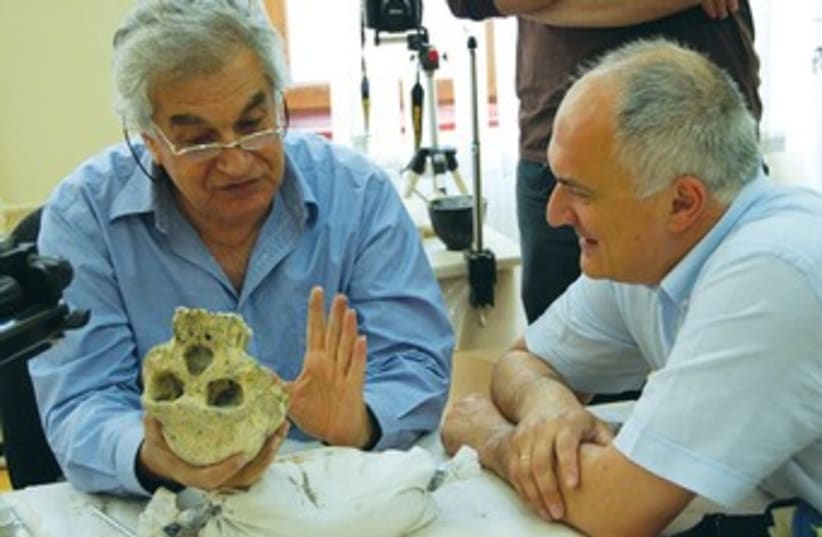Archeologists uncover oldest human skull outside of Africa
Prof. Yoel Rak of Tel Aviv University and an international research team announced the archeological discovery of the oldest human skull ever found outside of Africa, in a paper printed in the journal Science on Thursday.
